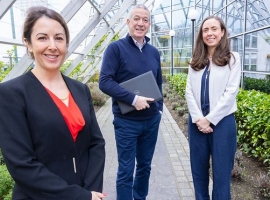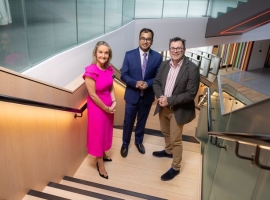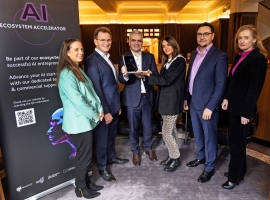
A new survey released today has found that cyber risk, macro-economic challenges and change management are the top risks for Irish insurers.
This is according to the Centre for the Study of Financial Innovation’s (“CSFI”) latest insurance Banana Skins 2017 survey. The report was conducted with the support of PwC and surveyed 836 insurance practitioners and industry observers in 52 countries including Ireland, to find out where they saw the greatest risks over the next 2-3 years.
The survey suggests that Irish insurers are slightly less concerned about overall risks compared to their global counterparts. They are also less concerned compared to two years ago. But Irish insurers are also slightly less prepared to handle the risks compared to global counterparts according to the study.
Cyber risk is the top concern for Irish insurers and is likely to remain high on the agenda given the recent WannaCry ransomware attacks. Some Irish respondents noted that ‘they are getting attacked daily with most attackers being amateur but some being scarily professional’. Cyber-crime is also an area of opportunity for insurers in the medium to long term as the underwriting data becomes available.
Concerns around the macro-economy have risen to second place from eight place last year, highlighting concerns about economic stability remain high. Irish respondents also raised concerns about any new policies the new US Administration may introduce. With concerns over increased protectionism, the risk of political interference has risen sharply (to 9th position from 19th place in 2015).
Change management is the third greatest concern in Ireland, having shot up from 15th place in 2015. The report raises concerns about the industry’s ability to address the formidable agenda of digitisation, new competition, consolidation and cost reduction it faces, especially because of rapidly emerging technologies which could transform insurance markets, such as driverless cars, the ‘internet of things’ and artificial intelligence.
Concerns around technology rank fourth. Irish respondents are focused on the threats and opportunities presented by technological advances, with some noting ‘a slow moving industry with more losers than winners and needing to adapt and become more agile’. There are also concerns about the adequacy of insurers’ internal technology systems and new competition, particularly from the ‘InsurTech’ sector.
Regulation has fallen to sixth position from the third spot two years ago. This is largely because recent regulatory changes are settling into business as usual (e.g. Solvency II), though the cost and complication of regulation continue to be concerns.
Brexit scored 7th in Ireland out of the 22 concerns listed. There is no doubt that Brexit is causing great uncertainty for Irish businesses including the insurance sector.
The report shows that industry’s ability to attract and retain human talent in Ireland has become more challenging. Digital skills are important and insurers will need to work hard to ensure that they have the skills fit for a digital age and retain these skills.
Access to capital was not seen as a concern in Ireland or globally. Some Irish respondents noted the challenge of finding opportunities to utilise surplus capital for growth and development.
Speaking at the study launch, Insurance Partner at PwC Ireland, Paraic Joyce said, "Cyber risk is top of the list in Ireland for two years in a row, while macro-economic challenges and change management risks have shot up to the top five. At the same time, it is concerning that the survey suggests that Irish insurers are less prepared to handle the risks compared to two years ago."
He added, "Both the challenges and opportunities presented by change underline the vital importance of being clear about where you’re best able to add value, and then being ruthless in targeting investment and management time at these priorities. A key path of this ‘fit for growth’ strategy is differentiating the capabilities needed to fuel growth, ‘good costs’ targeted for investment, from low-performing business and inefficient operations, ‘bad costs’ targeted for overall elimination."
Source: www.businessworld.ie

















